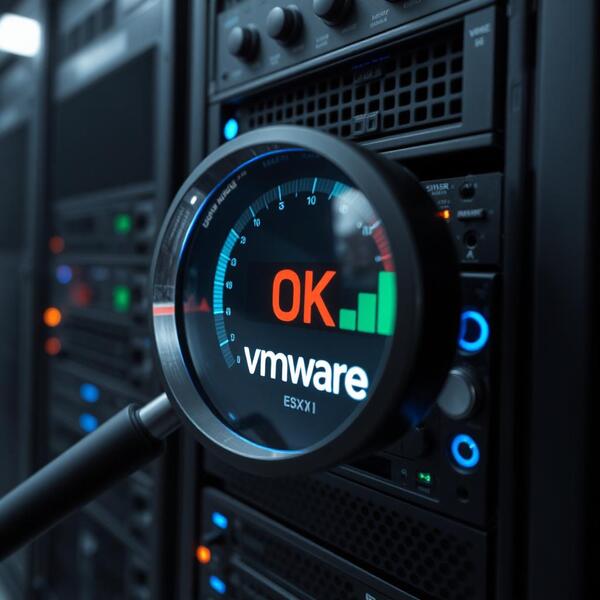A new version of check_esxi_hardware, an open source monitoring plugin to monitor the hardware of VMware ESXi servers, is available.

The latest version (20250221) of check_esxi_hardware improves the handling of exceptions coming from the pywbem Python module.
The pywbem internal exceptions were renamed at the release of pywbem 1.0.0. Examples:
| pywbem < 1.0.0 | pywbem >= 1.0.0 |
| pywbem.cim_operations | pywbem._cim_operations |
| pywbem.cim_http | pywbem._cim_http |
| pywbem.exceptions | pywbem._exceptions |
You certainly noticed the added underscore (_) in the name.
Backward compatibility is important to me. To be able to support older (prior to 1.0.0) AND newer versions of pywbem, check_esxi_hardware now makes a version comparison of the installed and used pywbem version. This is done by using the Python module "packaging".
This means: Starting with this release (20250221), the packaging Python module must be installed to run check_esxi_hardware.
This can be done by using a predefined package from the OS:
$ sudo apt install python3-packaging
Or use pip system-wide:
$ sudo pip3 install packaging
Or inside your Python3 venv, use pip as well.
While working on the improved pywbem exception handling, I also came across another exception, the plugin did not cover before: The HTTP exception!
This is useful when the plugin is mistakenly pointed to a HTTP endpoint which does not serve any CIM elements (ESXi HTTPS UI for example). The plugin will then show the HTTP exception and exit as UNKNOWN:
ck@mint ~ $ /usr/lib/nagios/plugins/check_esxi_hardware.py -H myesxi -C 443 -U root -P secret
UNKNOWN: 400 (Bad Request)
In the past this would have shown a large Python stacktrace error.
As always, this is an open source monitoring plugin and this often involves multiple people to get a new release out. Special thanks for this release go to Phil Randal and Claire Morgenthau for important and much appreciated coding hints.
Mike Anderson from wrote on Nov 13th, 2025:
Appreciate the shout-out to contributors. It’s great to see open source tools getting ongoing attention and support.
Thom Kerby from wrote on Jun 16th, 2025:
FYI, with VMWare ESXi 8.x, they implemented a new domain security policy that blocks the CIM/sfcb call that check_esxi_hardware.py makes. In order to get that disabled(set to warning instead of enforcing), you will need to SSH to the VMWare ESXi 8.x host and run the following command:
localcli system secpolicy domain set -n sfcbPluginFrameworkDom -l warning
You can check the status of the domain security policies with the following command:
localcli system secpolicy domain list
It must show the sfcbPluginFrameworkDom as warning (or disabled) or the check_esxi_hardware.py command will give an "Authentication Error" response.
You also still have to give the following command to enable WBEM (which is disabled by default on VMWare ESXi 7.x and 8.x):
esxcli system wbem set --enable true

AWS Android Ansible Apache Apple Atlassian BSD Backup Bash Bluecoat CMS Chef Cloud Coding Consul Containers CouchDB DB DNS Databases Docker ELK Elasticsearch Filebeat FreeBSD Galera Git GlusterFS Grafana Graphics HAProxy HTML Hacks Hardware Icinga Influx Internet Java KVM Kibana Kodi Kubernetes LVM LXC Linux Logstash Mac Macintosh Mail MariaDB Minio MongoDB Monitoring Multimedia MySQL NFS Nagios Network Nginx OSSEC OTRS Observability Office OpenSearch PHP Perl Personal PostgreSQL PowerDNS Proxmox Proxy Python Rancher Rant Redis Roundcube SSL Samba Seafile Security Shell SmartOS Solaris Surveillance Systemd TLS Tomcat Ubuntu Unix VMware Varnish Virtualization Windows Wireless Wordpress Wyse ZFS Zoneminder